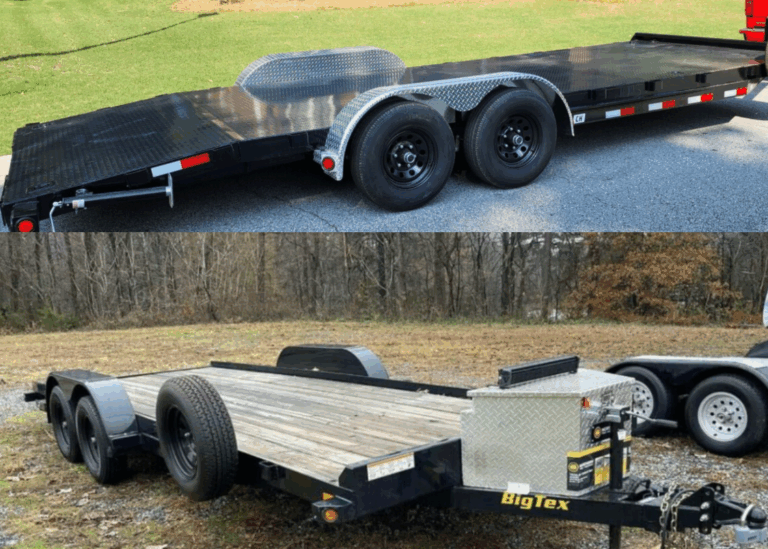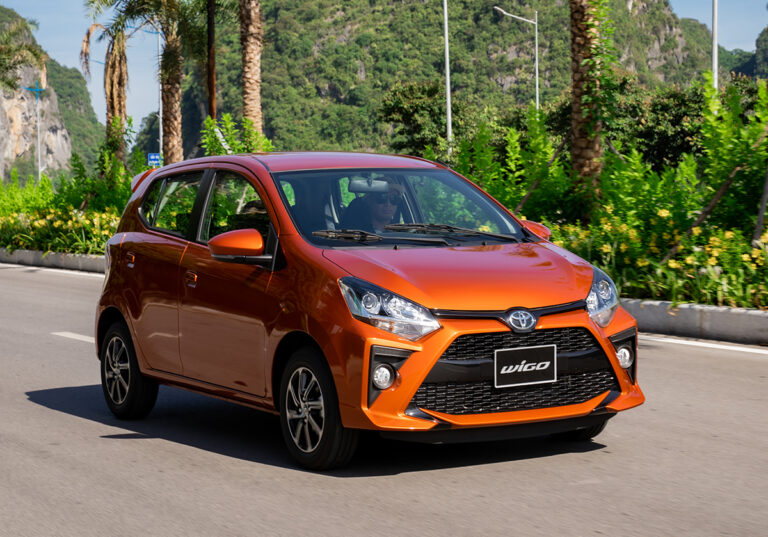All Car Battery Brands: A Comprehensive Guide to Powering Your Ride
All Car Battery Brands: A Comprehensive Guide to Powering Your Ride cars.truckstrend.com
The humble car battery, often overlooked until it fails, is the unsung hero powering your vehicle’s essential functions. It’s not just about starting the engine; it provides the initial jolt for your ignition, lights, radio, and countless electronic systems, acting as the heart of your vehicle’s electrical ecosystem. With a lifespan typically ranging from 3 to 5 years, knowing when and how to choose a replacement, and more importantly, understanding the vast landscape of "all car battery brands," is crucial for any vehicle owner.
This comprehensive guide will demystify the world of car batteries, exploring the top brands, key considerations for selection, and practical advice to ensure you make an informed decision that keeps your vehicle reliably on the road.
All Car Battery Brands: A Comprehensive Guide to Powering Your Ride
Understanding Car Batteries: The Heart of Your Vehicle
Before diving into brands, it’s essential to grasp the fundamental types and specifications of car batteries. The majority of automotive batteries are 12-volt lead-acid batteries, but they come in several variations:
- Flooded Lead-Acid (SLA/Wet Cell): These are the most common and traditional batteries, containing a liquid electrolyte solution (sulfuric acid and water). They are typically the most affordable but may require occasional maintenance (checking and refilling water levels in some models).
- Absorbed Glass Mat (AGM): In AGM batteries, the electrolyte is absorbed into fiberglass mats between the plates. This design makes them spill-proof, more resistant to vibration, and capable of deeper discharges without damage. They offer higher performance and a longer lifespan but come at a higher cost. They are increasingly popular for vehicles with start-stop technology or extensive electronic accessories.
- Gel Cell: Similar to AGM, gel batteries use a silica-gel substance to suspend the electrolyte. They are extremely resistant to vibration and can withstand deep discharges. However, they are more sensitive to overcharging and are less common in standard automotive applications compared to AGM.
- Lithium-Ion (LiFePO4): While still relatively new and expensive for starting automotive applications, lithium-ion batteries are gaining traction in high-performance or specialty vehicles due to their incredibly light weight, higher cranking power, and longer cycle life. They often require specific charging systems.
Beyond type, key specifications include:
- Cold Cranking Amps (CCA): This measures the battery’s ability to start an engine in cold temperatures. A higher CCA rating means better starting power in frosty conditions. Match or exceed your vehicle’s recommended CCA.
- Reserve Capacity (RC): This indicates how long a fully charged battery can power essential accessories if the alternator fails. A higher RC means more time to reach safety.
- Battery Group Size: This refers to the battery’s physical dimensions (length, width, height) and terminal placement. It’s critical to match the group size to your vehicle’s tray for proper fitment and safety.
Key Factors to Consider When Choosing a Car Battery
Selecting the right car battery isn’t just about picking a brand; it involves a careful evaluation of several factors:
- Vehicle Compatibility: Always consult your vehicle’s owner’s manual for the recommended battery group size, CCA, and RC ratings. Incorrect fitment can lead to poor performance or even safety hazards.
- Climate: If you live in a cold climate, prioritize a battery with a higher CCA rating to ensure reliable starting power. In hot climates, look for batteries designed to resist internal corrosion caused by heat.
- Driving Habits: If you primarily make short trips, your alternator may not fully recharge the battery, leading to premature wear. Consider an AGM battery for better deep-cycle resistance. If you rarely drive, a battery tender is advisable.
- Electronic Demands: Modern vehicles are packed with electronics. If your car has start-stop technology, a premium sound system, or numerous aftermarket accessories, an AGM battery is often a better choice due to its ability to handle higher electrical loads and deeper discharges.
- Warranty: A longer warranty period (e.g., 3-5 years) is a good indicator of a manufacturer’s confidence in their product’s durability. Understand what the warranty covers (full replacement vs. pro-rated).
- Brand Reputation & Reviews: While a higher price doesn’t always guarantee quality, reputable brands often invest more in research, development, and quality control. Check online reviews and ratings from other consumers.
- Maintenance Needs: Most modern batteries are "maintenance-free" (sealed units). If you opt for a traditional flooded battery, be prepared to occasionally check and top off electrolyte levels with distilled water.
- Budget: Car battery prices vary significantly. While it’s tempting to opt for the cheapest option, investing a bit more in a higher-quality battery from a reputable brand can save you money and headaches in the long run.
The Leading Players: A Deep Dive into Top Car Battery Brands
The market for car batteries is dominated by a few major manufacturers, who often produce batteries under various brand names for different retailers. Here’s a look at some of the most prominent car battery brands you’ll encounter:
Premium & OEM Suppliers
These brands are known for their quality, reliability, and often serve as original equipment manufacturers (OEM) for vehicle manufacturers.
- Interstate Batteries: One of the most recognized and trusted brands, Interstate is known for its widespread availability, excellent performance, and strong warranties. They offer a full range of flooded and AGM batteries for various applications, often being a go-to choice for mechanics and dealerships.
- Exide: A global leader in battery technology, Exide has a long history and produces batteries for automotive, marine, and industrial applications. They offer reliable flooded and AGM options, often focusing on advanced technology for enhanced performance and longevity.
- ACDelco: As General Motors’ parts division, ACDelco batteries are designed to meet GM’s stringent specifications, but they are also available for other makes and models. They offer a variety of maintenance-free batteries known for their reliable starting power.
- Bosch: A German multinational engineering and technology company, Bosch produces high-quality automotive components, including batteries. Their batteries are known for their robust construction and consistent performance, often featuring advanced technologies for increased lifespan and power.
- Optima Batteries: Famous for their distinctive spiral-cell design, Optima batteries (RedTop, YellowTop, BlueTop) are known for their extreme vibration resistance, fast recharging, and superior cranking power. They are popular among performance enthusiasts and for off-road vehicles.
Retailer-Specific & Value Brands
Many major automotive parts retailers and big-box stores have their own private-label battery brands, often manufactured by the same companies that produce the premium brands (e.g., Clarios, East Penn).
- DieHard (Advance Auto Parts/Sears): Historically a Sears brand, DieHard batteries are now widely available through Advance Auto Parts. They have a long-standing reputation for reliability and durability, offering a range of flooded and AGM batteries for various vehicle types.
- Duralast (AutoZone): AutoZone’s private-label brand, Duralast batteries are a popular choice due to their accessibility and competitive pricing. They offer a good balance of performance and value, with a range of options including standard flooded and Duralast Platinum AGM batteries.
- EverStart (Walmart): Walmart’s battery brand, EverStart, is known for its affordability and wide availability. While often a budget-friendly option, they provide reliable starting power for everyday vehicles and come with a decent warranty.
- Super Start (O’Reilly Auto Parts): O’Reilly Auto Parts’ house brand, Super Start batteries offer a comprehensive lineup, including standard, premium, and AGM options. They are a solid choice for those looking for a balance of performance and value.
- Kirkland Signature (Costco): Costco’s private-label battery, often manufactured by Johnson Controls (now Clarios), offers excellent value for members. They typically provide reliable performance at a very competitive price.
Specialty & Performance Brands
These brands cater to specific needs, often emphasizing extreme performance or specialized applications.
- Odyssey Batteries: Produced by EnerSys, Odyssey batteries are high-performance AGM batteries known for their exceptional cranking power, deep cycle capabilities, and long lifespan. They are often chosen for heavy-duty applications, off-road vehicles, and high-performance cars.
- NorthStar (now part of Clarios/Exide): Formerly a standalone brand known for its premium AGM batteries, NorthStar’s technology is now integrated into products from Clarios (the world’s largest battery manufacturer) and Exide. Their batteries were celebrated for their robust construction and exceptional performance in demanding conditions.
- XS Power: A niche brand focusing on high-performance audio and racing applications, XS Power batteries are designed to deliver massive amounts of power for demanding electrical systems. They are typically AGM or lithium batteries with very high current output.
How to Choose the Right Battery Brand for Your Vehicle
- Start with Your Owner’s Manual: This is your primary source for recommended battery specifications (group size, CCA, RC).
- Assess Your Needs: Consider your climate, driving habits, and the electrical demands of your vehicle.
- Read Reviews: Look for consistent positive feedback on longevity and performance for brands you’re considering.
- Compare Warranties: A longer warranty indicates greater confidence from the manufacturer.
- Check Availability: Ensure the brand and specific battery model you want are readily available from a reputable retailer, especially for warranty claims.
- Consider Professional Installation: If you’re not comfortable with DIY, factor in installation costs. Many retailers offer free installation with purchase.
Tips for Maximizing Battery Life, Regardless of Brand
Even the best battery won’t last if not cared for properly.
- Keep Terminals Clean: Corroded terminals impede current flow. Clean them regularly with a wire brush and a baking soda/water solution.
- Secure the Battery: Ensure the battery is tightly secured in its tray to prevent vibration damage.
- Avoid Short Trips: Frequent short trips prevent the alternator from fully recharging the battery. Take longer drives periodically.
- Use a Battery Tender/Charger: If you store your vehicle or don’t drive it frequently, a smart battery tender can maintain its charge and extend its life.
- Limit Electronic Use When Engine is Off: Avoid running the radio, lights, or other accessories for extended periods without the engine running.
- Check Your Charging System: Have your alternator and charging system checked regularly to ensure they are functioning correctly. A faulty alternator can undercharge or overcharge your battery.
- Insulate in Extreme Temperatures: In very cold climates, a battery blanket can help retain warmth, while in hot climates, ensuring good ventilation around the battery can prevent overheating.
Potential Challenges and Solutions
- Incorrect Fitment: Always double-check the group size before purchase. If unsure, ask a professional to measure.
- Parasitic Drains: If your battery keeps dying, a "parasitic drain" (something drawing power when the car is off) might be the culprit. A mechanic can diagnose this.
- Premature Failure: If your new battery fails within the warranty period, keep your receipt and contact the retailer for a replacement.
- Recycling Old Batteries: Car batteries contain hazardous materials. Most retailers and auto shops offer free recycling services for old batteries. Never dispose of them in regular trash.
Table: Typical Price Ranges for Common Car Battery Brands (Estimates)
Please note that prices are highly variable based on battery group size, CCA rating, type (flooded vs. AGM), retailer, and regional promotions. This table provides general estimated price ranges for common automotive applications.
| Brand Name | Battery Type (Common) | Typical Price Range (USD) | Key Feature/Benefit |
|---|---|---|---|
| Interstate Batteries | Flooded, AGM | $150 – $350 | Widely trusted, excellent reliability, strong warranty |
| Exide | Flooded, AGM | $130 – $320 | Global leader, robust construction, advanced technology |
| ACDelco | Flooded, AGM (sealed) | $120 – $300 | OEM quality, reliable starting power, maintenance-free |
| Bosch | Flooded, AGM | $140 – $350 | German engineering, consistent performance, long life |
| Optima Batteries | AGM (Spiral Cell) | $220 – $450+ | Extreme vibration resistance, fast recharge, high CCA |
| DieHard | Flooded, AGM | $130 – $380 | Long-standing reputation for durability, good warranty |
| Duralast (AutoZone) | Flooded, AGM (Platinum) | $120 – $350 | Good value, widely available, reliable performance |
| EverStart (Walmart) | Flooded, AGM | $100 – $250 | Budget-friendly, accessible, decent everyday performance |
| Super Start (O’Reilly) | Flooded, AGM | $110 – $300 | Solid performance, good value, comprehensive range |
| Kirkland Signature (Costco) | Flooded, AGM | $90 – $200 | Excellent value for members, reliable performance |
| Odyssey Batteries | AGM | $280 – $500+ | High-performance, deep cycle, long lifespan, heavy-duty |
| NorthStar (Clarios/Exide) | AGM | $250 – $450+ | Premium quality, robust, exceptional performance |
Frequently Asked Questions (FAQ)
Q1: How often should I replace my car battery?
A1: On average, car batteries last 3 to 5 years. However, this can vary based on climate (extreme heat/cold shorten life), driving habits, and battery type. Regular testing can help determine its health.
Q2: Can I use a higher CCA battery than recommended?
A2: Yes, generally, it’s safe to use a battery with a higher CCA rating than your vehicle’s recommendation. It will provide more starting power, which can be beneficial in cold climates. However, ensure the physical size (group size) matches your vehicle’s battery tray.
Q3: What’s the difference between CCA and RC?
A3: CCA (Cold Cranking Amps) measures the battery’s ability to start an engine in cold temperatures (0°F or -18°C). A higher CCA means more power for cold starts. RC (Reserve Capacity) indicates how long a fully charged battery can power essential accessories if the alternator fails (typically measured in minutes at 25 amps). A higher RC means more "reserve" power.
Q4: Is it worth paying more for an AGM battery?
A4: For many modern vehicles, especially those with start-stop technology or extensive electronics, an AGM battery is often worth the extra cost. They offer better resistance to vibration, handle deeper discharges without damage, recharge faster, and generally have a longer lifespan than traditional flooded batteries.
Q5: How do I know if my battery is failing?
A5: Common signs include slow engine cranking, dimming headlights when the engine is off, the "check battery" light on your dashboard, corrosion on battery terminals, or the battery not holding a charge. A simple battery test at an auto parts store can confirm its health.
Q6: Where can I recycle my old car battery?
A6: Most auto parts stores (e.g., AutoZone, Advance Auto Parts, O’Reilly), car dealerships, and service centers will accept old car batteries for recycling, often for free. It’s crucial to recycle them properly due to the hazardous lead and acid they contain.
Conclusion
Navigating the world of car battery brands doesn’t have to be overwhelming. By understanding the different types of batteries, the key specifications, and the reputation of leading manufacturers, you can make an informed decision that ensures reliable starts and optimal performance for your vehicle. Whether you opt for the proven reliability of Interstate, the advanced technology of Optima, or the value of a retailer-specific brand, prioritizing compatibility, performance, and a good warranty will safeguard your investment. Remember, a well-chosen and properly maintained battery is the foundation of a dependable vehicle, keeping you on the road with confidence.




